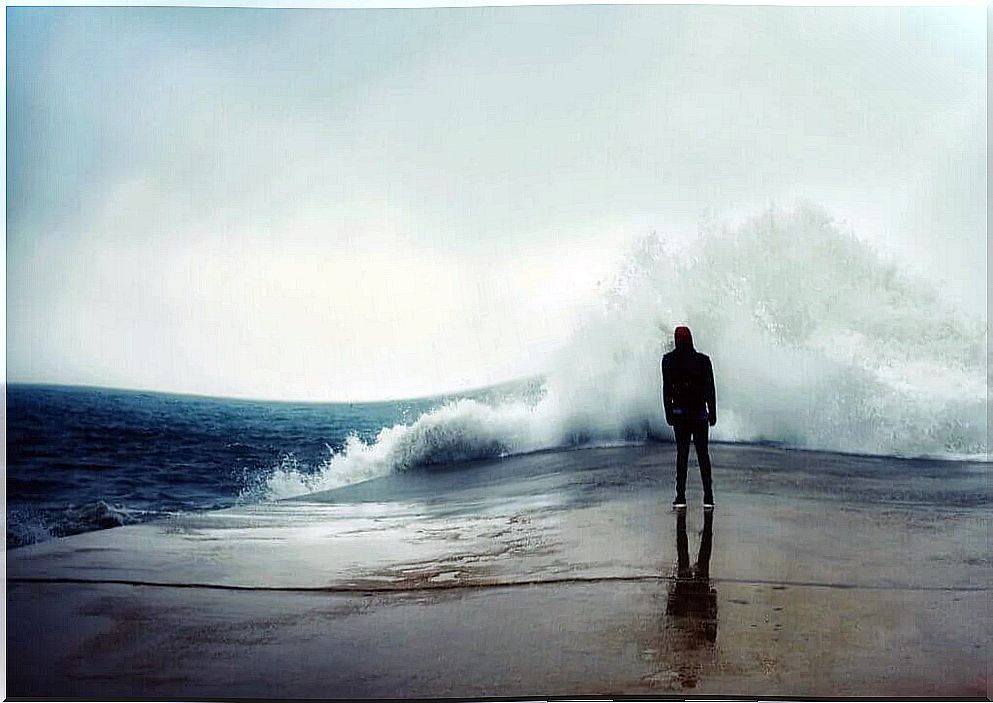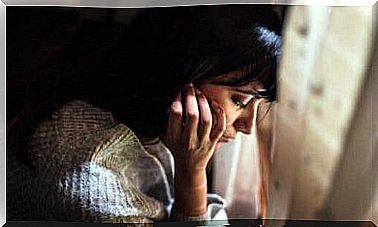Adversity Doesn’t Always Make Us More Resilient

Adversity doesn’t always make us more resilient. We reached a point where the concept of resilience was overlaid with an excessively luminous wrapping that was even far from reality. Not everyone who goes through a time of adversity and hardship can activate this wonderful ability. Sometimes, the difficult days sink us, and this event also falls back to normal.
We are living through a time of transformation at all levels. Perhaps for this reason, approaches such as more optimistic positivism no longer serve us in the same way as in previous years. Thus, the classic Always look on the bright side of life (always look on the bright side of life ), sung in Brian’s Life , is no longer as effective under current circumstances.
At this moment, we are forced to glimpse the difficulties and risks that lie ahead of us. We can’t turn our faces away, it’s not enough just to tell ourselves that “it’s going to be okay and we’ll come out stronger.” It’s time to make room for other possibilities, learn to process adversity, negative emotions, and that less gentle side of life.
Resilience exists, but it doesn’t work on autopilot. It doesn’t activate on its own and doesn’t always do it when we need it most. That’s why we must understand how this valuable psychological skill really works.

Adversity doesn’t always make us more resilient, but we can learn
We get used to labeling experiences – and emotions as well – as “good” or “bad”. Such a thing causes many people to become intolerant of anything that goes to that last extreme. And, in itself, this is understandable.
We prefer stability, complacency, the harmony of that day to day in which we are satisfied, we enjoy that normality in which nothing is out of tune and everything is in balance.
However, when the unforeseen arrives, the tip of the problems and the noise of the difficulty in any of its forms, it is common for the blockage to appear. We were out of breath and without the psychological resources to weather the storm.
Adversity doesn’t always make us more resilient, because we don’t all know how to activate it. In fact, there are situations where what we have ahead of us is a moment of great difficulty that not everyone can overcome. Let’s delve a little deeper into this topic.
Resilience is not about facing adversity, it is about “navigating” with it
Often, when we talk about resilience, it’s common to use the lighthouse metaphor. We visualize a rough sea with violent waves attacking this construction, whose resistance is infinite. Regardless of winds, storms and the strength of a thousand oceans, the lighthouse can withstand anything.
Well, this metaphor about resilience is incorrect. In its place, we should use a vision a little less heroic, a little less brilliant and inspiring. The most appropriate would be the “signal buoy” lesson, which consists of the following:
- Instead of fighting the waves (adversity), it is necessary to move with them, as signal buoys do.
- One must maintain buoyancy, that is, mental clarity and temperance, to move between stormy days.
- The real secret is having something to cling to (having an anchor).
- This inner anchor is also made up of our thoughts, attitudes and behaviors. These are the elements that sustain us and help us get through difficult days.
Adversity does not always make us more resilient (there are processes that take time)
Adversity doesn’t always make us more resilient. Sometimes difficult days are just that, difficult days that make us fall for a moment and then pass without teaching us any lessons. Other times, it is not possible to activate resilience because we lack these anchors, coping resources:
- There are times when, in the midst of adversity, we sink. This event is more normal than we think.
- Otherwise, there would be no psychologists, psychiatrists and all the mental health specialists. Because we are not heroes, we are not lighthouses that resist everything. We are human, fallible people who sometimes fall.
- Needing experts to provide us with tools to deal with what hurts is perfectly normal.

There are people who deal with everything and see opportunities, others just want to survive (and everything is equally acceptable)
Adversity doesn’t always make us more resilient, that’s true. Also, there are people who are extremely skilled in these circumstances. They not only deal with any difficulty, they also take advantage of it. Others, on the other hand, are limited to being in survival mode. In other words, withstand whatever happens, hold on so as not to be carried away by the current.
Let’s be clear, both situations are equally acceptable and admirable. The goal, when the dark days come, is to get out of them with physical and mental health. That’s the real success and our real goal.
There will be those who will cross that threshold with better resources and new earnings. Others will only feel relief at having left that fog to start a new stage.
Either of these two circumstances is appropriate. The important thing is to continue sailing, to continue advancing towards a horizon of hope.









